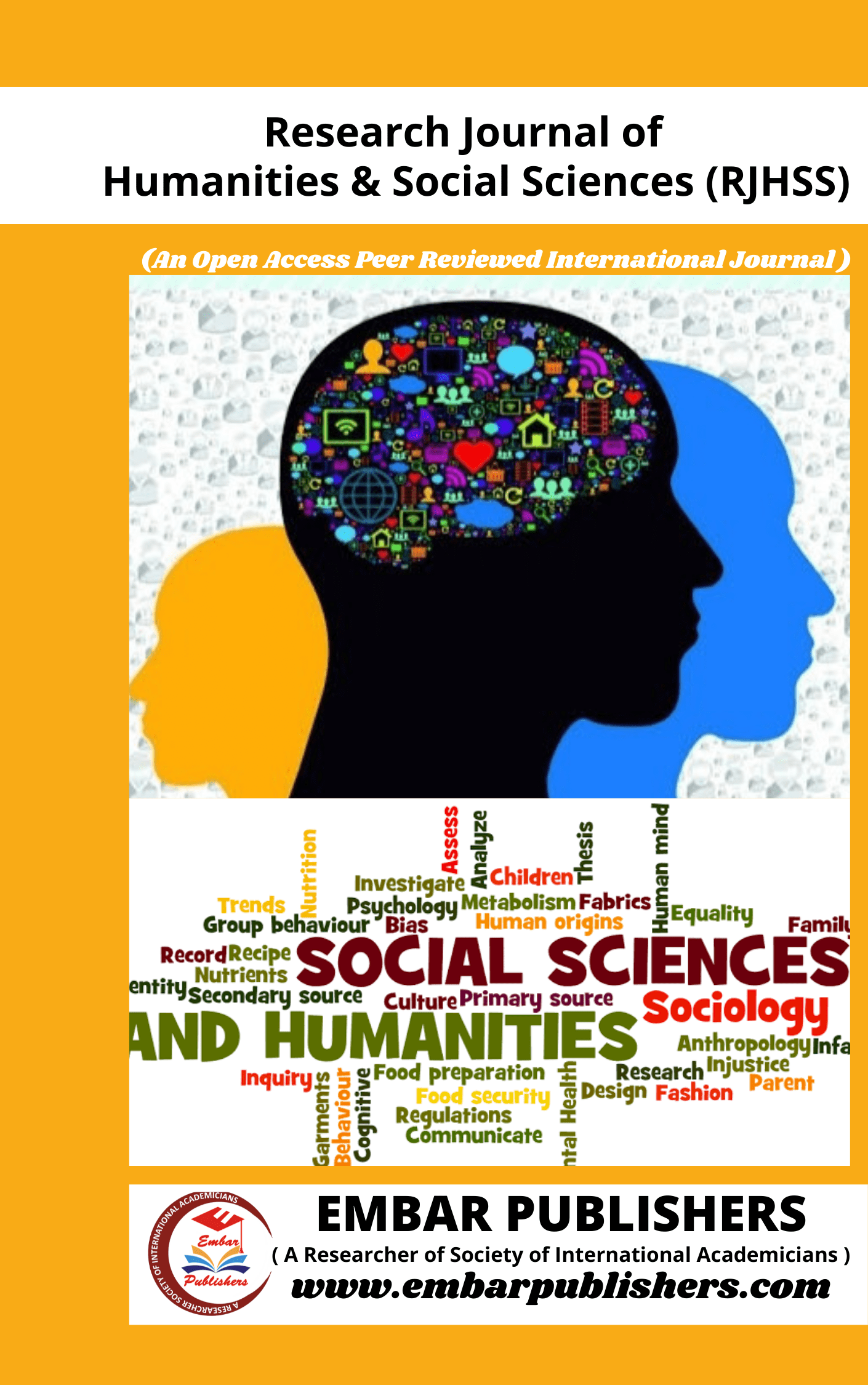
The Impact of Teacher Training on the Use of Digital Technologies in English Language Teaching and Learning
Bhagirath Singh Negi
Assistant professor at Far Western University, Manilek Multiple Campus Melauli, Phd Scholar Dr.K.N.Modi University Rajastan , India.
DOI: doi.org/10.58924/rjhss.v4.iss1.p3
Published Date: 26-Feb, 2025
Keywords: Teacher training, digital technologies, English language teaching, professional development, educational technology
Abstract:
The purpose of this study is to investigate the ways in which programs for teacher preparation have an impact on the manner in which digital technologies are incorporated into English language learning and instruction. A total of one hundred fifty English language instructors from a variety of educational settings participated in the study using a mixed-methods approach. The results of surveys were used to collect quantitative data, while interviews and classroom observations were used to collect qualitative data. As a result of the findings, comprehensive programs for teacher preparation improve teachers' digital skills, as well as their confidence and the regularity with which they use technologies in the classroom. Furthermore, the studies emphasize that there are significant elements that influence the efficient application of digital technologies. These aspects include the availability of resources, the support of institutions, and the attitudes of teachers toward technology. The findings emphasize the significance of continuous professional development and provide clear recommendations for legislators and educational institutions about how to successfully establish programs that are suitable for the digital era in order to accomplish the goal of good teacher preparation.
References:
1. Anderson, S. E., & Putman, R. S. (2020). Special education teachers’ experience, confidence, beliefs, and knowledge about integrating technology. Journal of Special Education Technology, 35(1), 37-50.
2. Akram, H., Abdelrady, A. H., Al-Adwan, A. S., & Ramzan, M. (2022). Teachers’ perceptions of technology integration in teaching-learning practices: A systematic review. Frontiers in Psychology, 13, 920317.
3. Alberola-Mulet, I., Iglesias-Martínez, M. J., & Lozano-Cabezas, I. (2021). Teachers’ beliefs about the role of digital educational resources in educational practice: A qualitative study. Education Sciences, 11(5), 239.
4. Christensen, R., & Trevisan, O. (2023). Alignment of the synthesis of qualitative data (SQD) model, technology self-efficacy and TPACK Core measures in preparing pre-service teachers to integrate technology. Routledge Open Research, 1, 20.
5. Çınar, A., & Alcı, B. (2022). Teachers’ Attitudes toward Information and Communication Technologies Scale: Adaptation Study to Turkish. e-Uluslararası Eğitim Araştırmaları Dergisi, 13(1), 1-18.
6. Crompton, H., Burke, D., Jordan, K., & Wilson, S. W. (2021). Learning with technology during emergencies: A systematic review of K‐12 education. British Journal of Educational Technology, 52(4), 1554-1575.
7. Czerkawski, B., & Berti, M. (2020). Language learning in the 21st century: current status and future directions. Language Learning and Professionalization in Higher Education: Pathways to Preparing Learners and Teachers in/for the 21st Century, 11.
8. Esteve-Mon, F. M., Llopis-Nebot, M. Á., & Adell-Segura, J. (2020). Digital teaching competence of university teachers: A systematic review of the literature. IEEE Revista Iberoamericana de Tecnologías del Aprendizaje, 15(4), 399-406.
9. Fernández-Batanero, J. M., Montenegro-Rueda, M., Fernández-Cerero, J., & García-Martínez, I. (2022). Digital competences for teacher professional development. Systematic Review. European Journal of Teacher Education, 45(4), 513-531.
10. Hubbard, P. (2022). Bridging the gap between theory and practice: Technology and teacher education. In The Routledge Handbook of Second Language Acquisition and Technology (pp. 21-35). Routledge.
11. Jeon, J., Lee, S., & Choe, H. (2022). Enhancing EFL pre-service teachers’ affordance noticing and utilizing with the Synthesis of Qualitative Evidence strategies: An exploratory study of a customizable virtual environment platform. Computers & Education, 190, 104620.
12. Kulaksız, T., & Karaca, F. (2023). A path model of contextual factors influencing science teachers’ Technological Pedagogical Content Knowledge. Education and Information Technologies, 28(3), 3001-3026.
13. Lai, J. W., & Bower, M. (2020). Evaluation of technology use in education: Findings from a critical analysis of systematic literature reviews. Journal of Computer Assisted Learning, 36(3), 241-259.
14. Shadiev, R., & Yang, M. (2020). Review of studies on technology-enhanced language learning and teaching. Sustainability, 12(2), 524.
15. Sims, S., & Fletcher-Wood, H. (2021). Identifying the characteristics of effective teacher professional development: A critical review. School Effectiveness and School Improvement, 32(1), 47-63.
16. Skantz-Åberg, E., Lantz-Andersson, A., Lundin, M., & Williams, P. (2022). Teachers’ professional digital competence: An overview of conceptualisations in the literature. Cogent Education, 9(1), 2063224.
17. Smith, B., & González-Lloret, M. (2021). Technology-mediated task-based language teaching: A research agenda. Language Teaching, 54(4), 518-534.
18. Tondeur, J., Scherer, R., Siddiq, F., & Baran, E. (2020). Enhancing pre-service teachers’ technological pedagogical content knowledge (TPACK): A mixed-method study. Educational Technology Research and Development, 68(1), 319-343.
19. Wilson, M. L., Ritzhaupt, A. D., & Cheng, L. (2020). The impact of teacher education courses for technology integration on pre-service teacher knowledge: A meta-analysis study. Computers & Education, 156, 103941.
20. Wu, J. G., Zhang, D., & Lee, S. M. (2023). Into the brave new metaverse: Envisaging future language teaching and learning. IEEE Transactions on Learning Technologies, 17, 44-53.
21. Zhang, R., & Zou, D. (2022). Types, purposes, and effectiveness of state-of-the-art technologies for second and foreign language learning. Computer Assisted Language Learning, 35(4), 696-742.
22. Zhao, Y., & Lai, C. (2023). Technology and second language learning: Promises and problems. In Technology-mediated learning environments for young English learners (pp. 167-206). Routledge.

ISSN(Online): 2945-3968
Publisher: Embar Publishers
Frequency: Bi-Monthly
Chief Editor: Dr N.L.N Jayanthi
Language: English
